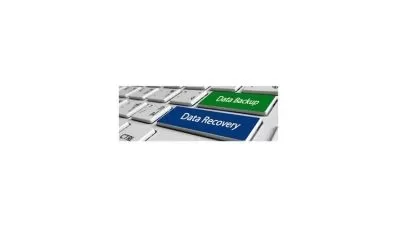IAPP CIPM - Certified Information Privacy Manager
Edcorner Learning
4:37:55
Description
Become Certified Information Privacy Manager
What You'll Learn?
- Privacy Program Management
- Privacy Governance
- Applicable Laws and Regulations
- Data Assessments
- Policies
- Data Subject Rights
- Training and Awareness
- Protecting Personal Information
- Data Breach Incident Plans
- Monitoring and Auditing Program Performance
Who is this for?
What You Need to Know?
More details
DescriptionIAPP CIPM - Certified Information Privacy Manager.
The Certified Information Privacy Manager (CIPM) course is designed to provide privacy professionals with the expertise and practical knowledge needed to manage and implement privacy programs within organizations. This comprehensive course covers the operational aspects of privacy, focusing on aligning privacy strategies with organizational goals, ensuring compliance with global privacy regulations, and fostering a culture of accountability and data protection. Participants will gain insights into the day-to-day responsibilities of privacy managers, including stakeholder engagement, cross-functional collaboration, risk mitigation, and policy development. By the end of this course, participants will be equipped to manage complex privacy programs, navigate evolving regulatory landscapes, and develop strategies to protect personal information effectively.
Module 1: Introduction to Privacy Program Management
This module introduces the fundamental elements of managing a privacy program. It begins by defining the key roles and responsibilities necessary for overseeing privacy within an organization, including the structure of accountability and the distinctions between managing global versus regional privacy compliance. Participants will also learn about the critical roles various stakeholders play in ensuring the success of privacy programs, emphasizing the importance of collaboration across departments to meet privacy objectives.
Module 2: Privacy Governance
In this module, participants will explore the governance structures required for an effective privacy program. This includes understanding the placement of the privacy function within an organization’s hierarchy and examining the responsibilities of the Data Protection Officer (DPO), including their reporting lines and the importance of independence. Participants will also learn how to define the scope and objectives of a privacy program through the creation of a privacy charter and the development of a privacy strategy that aligns with organizational goals and mitigates operational risks. Additionally, the module will cover cross-functional support, engaging departments like legal, HR, and IT to ensure cohesive privacy governance, and aligning with major privacy frameworks such as GDPR, CCPA, and others.
Module 3: Applicable Laws and Regulations
This module focuses on the regulatory environment governing privacy. Participants will examine key privacy laws and regulations across various jurisdictions, including GDPR, CCPA, and other global privacy frameworks. The module will highlight the challenges of cross-jurisdictional privacy requirements and provide strategies for harmonizing privacy efforts across different legal landscapes. Participants will also learn how to align privacy compliance with broader organizational strategies and stay current with evolving privacy laws to maintain continuous compliance.
Module 4: Data Assessments
In this module, participants will learn how to assess their organization’s privacy posture through various tools and processes. This includes creating and maintaining accurate data inventories and maps to understand data flows within the organization. Participants will conduct gap analyses to identify compliance gaps between current practices and regulatory requirements, and learn when and how to conduct Privacy Impact Assessments (PIAs) and Data Protection Impact Assessments (DPIAs) to ensure privacy risks are mitigated. Vendor assessments will also be covered, with a focus on evaluating third-party vendors for privacy compliance risks.
Module 5: Policies
This module will focus on the development and implementation of privacy-related policies within an organization. Participants will learn about common types of privacy policies, such as those related to data retention, data sharing, and data protection, and best practices for structuring and communicating these policies. The module will also cover the integration of privacy policies into operational processes to ensure that employees across the organization understand and comply with these policies.
Module 6: Data Subject Rights
In this module, participants will explore how to communicate and enforce data subject rights, such as access, rectification, and erasure. The module will cover strategies for crafting clear and comprehensive privacy notices, managing choice and consent mechanisms to allow individuals to opt-in or opt-out of data processing, and ensuring that procedures are in place to facilitate data subject requests for access and correction. Participants will also learn about data portability and erasure, and how to implement procedures for transferring or deleting personal data.
Module 7: Training and Awareness
This module emphasizes the importance of privacy training and awareness programs within organizations. Participants will learn how to develop effective privacy training tailored to the specific needs of different departments and roles, ensuring that all employees understand their privacy responsibilities. The module will also cover ongoing awareness campaigns to promote privacy within the organization and methods to evaluate the effectiveness of privacy training initiatives.
Module 8: Protecting Personal Information
In this module, participants will examine strategies for protecting personal information through a holistic approach, including the application of Privacy by Design (PbD) principles. The module will cover security measures such as encryption, anonymization, and pseudonymization techniques, and emphasize the importance of data minimization and retention. Participants will also learn about proactive measures to prevent data breaches, including robust incident prevention strategies.
Module 9: Data Breach Incident Plans
This module will focus on preparing for and responding to data security incidents and breaches. Participants will learn how to develop comprehensive incident response plans, including breach notification procedures in compliance with regulatory requirements (such as GDPR’s 72-hour rule). The module will also cover crisis management strategies, including coordinating efforts between legal, public relations, and other departments during a breach, and conducting post-incident reviews to improve processes and prevent future incidents.
Module 10: Monitoring and Auditing Program Performance
In the final module, participants will learn how to monitor and evaluate the performance of privacy programs to ensure continuous compliance and improvement. The module will cover key performance indicators (KPIs) used to measure the effectiveness of privacy initiatives, as well as audit procedures for conducting both internal and external privacy audits. Participants will explore strategies for using audit results to drive continuous improvement in privacy practices, and the importance of reporting audit findings to stakeholders. Additionally, the module will emphasize the role of accountability in ensuring that privacy programs are maintained and optimized over time, and how to communicate the success and areas for improvement of the privacy program to key decision-makers within the organization.
By the end of the Certified Information Privacy Manager (CIPM) course, participants will have a comprehensive understanding of how to develop, implement, and manage privacy programs that align with organizational goals and comply with global privacy regulations. With practical insights into privacy governance, legal compliance, data assessments, and incident response planning, participants will be well-equipped to drive privacy initiatives that mitigate risks, protect personal information, and build trust with stakeholders. This course is ideal for privacy professionals, legal advisors, compliance officers, and anyone responsible for managing or overseeing privacy programs within their organization.
Who this course is for:
- Security Manager
- Information Officers
- Professionals responsible for integrating privacy requirements into day-to-day operations.
- IT Auditors
- Legal Compliance Officers
- Data Protection Officer and Lawyers
IAPP CIPM - Certified Information Privacy Manager.
The Certified Information Privacy Manager (CIPM) course is designed to provide privacy professionals with the expertise and practical knowledge needed to manage and implement privacy programs within organizations. This comprehensive course covers the operational aspects of privacy, focusing on aligning privacy strategies with organizational goals, ensuring compliance with global privacy regulations, and fostering a culture of accountability and data protection. Participants will gain insights into the day-to-day responsibilities of privacy managers, including stakeholder engagement, cross-functional collaboration, risk mitigation, and policy development. By the end of this course, participants will be equipped to manage complex privacy programs, navigate evolving regulatory landscapes, and develop strategies to protect personal information effectively.
Module 1: Introduction to Privacy Program Management
This module introduces the fundamental elements of managing a privacy program. It begins by defining the key roles and responsibilities necessary for overseeing privacy within an organization, including the structure of accountability and the distinctions between managing global versus regional privacy compliance. Participants will also learn about the critical roles various stakeholders play in ensuring the success of privacy programs, emphasizing the importance of collaboration across departments to meet privacy objectives.
Module 2: Privacy Governance
In this module, participants will explore the governance structures required for an effective privacy program. This includes understanding the placement of the privacy function within an organization’s hierarchy and examining the responsibilities of the Data Protection Officer (DPO), including their reporting lines and the importance of independence. Participants will also learn how to define the scope and objectives of a privacy program through the creation of a privacy charter and the development of a privacy strategy that aligns with organizational goals and mitigates operational risks. Additionally, the module will cover cross-functional support, engaging departments like legal, HR, and IT to ensure cohesive privacy governance, and aligning with major privacy frameworks such as GDPR, CCPA, and others.
Module 3: Applicable Laws and Regulations
This module focuses on the regulatory environment governing privacy. Participants will examine key privacy laws and regulations across various jurisdictions, including GDPR, CCPA, and other global privacy frameworks. The module will highlight the challenges of cross-jurisdictional privacy requirements and provide strategies for harmonizing privacy efforts across different legal landscapes. Participants will also learn how to align privacy compliance with broader organizational strategies and stay current with evolving privacy laws to maintain continuous compliance.
Module 4: Data Assessments
In this module, participants will learn how to assess their organization’s privacy posture through various tools and processes. This includes creating and maintaining accurate data inventories and maps to understand data flows within the organization. Participants will conduct gap analyses to identify compliance gaps between current practices and regulatory requirements, and learn when and how to conduct Privacy Impact Assessments (PIAs) and Data Protection Impact Assessments (DPIAs) to ensure privacy risks are mitigated. Vendor assessments will also be covered, with a focus on evaluating third-party vendors for privacy compliance risks.
Module 5: Policies
This module will focus on the development and implementation of privacy-related policies within an organization. Participants will learn about common types of privacy policies, such as those related to data retention, data sharing, and data protection, and best practices for structuring and communicating these policies. The module will also cover the integration of privacy policies into operational processes to ensure that employees across the organization understand and comply with these policies.
Module 6: Data Subject Rights
In this module, participants will explore how to communicate and enforce data subject rights, such as access, rectification, and erasure. The module will cover strategies for crafting clear and comprehensive privacy notices, managing choice and consent mechanisms to allow individuals to opt-in or opt-out of data processing, and ensuring that procedures are in place to facilitate data subject requests for access and correction. Participants will also learn about data portability and erasure, and how to implement procedures for transferring or deleting personal data.
Module 7: Training and Awareness
This module emphasizes the importance of privacy training and awareness programs within organizations. Participants will learn how to develop effective privacy training tailored to the specific needs of different departments and roles, ensuring that all employees understand their privacy responsibilities. The module will also cover ongoing awareness campaigns to promote privacy within the organization and methods to evaluate the effectiveness of privacy training initiatives.
Module 8: Protecting Personal Information
In this module, participants will examine strategies for protecting personal information through a holistic approach, including the application of Privacy by Design (PbD) principles. The module will cover security measures such as encryption, anonymization, and pseudonymization techniques, and emphasize the importance of data minimization and retention. Participants will also learn about proactive measures to prevent data breaches, including robust incident prevention strategies.
Module 9: Data Breach Incident Plans
This module will focus on preparing for and responding to data security incidents and breaches. Participants will learn how to develop comprehensive incident response plans, including breach notification procedures in compliance with regulatory requirements (such as GDPR’s 72-hour rule). The module will also cover crisis management strategies, including coordinating efforts between legal, public relations, and other departments during a breach, and conducting post-incident reviews to improve processes and prevent future incidents.
Module 10: Monitoring and Auditing Program Performance
In the final module, participants will learn how to monitor and evaluate the performance of privacy programs to ensure continuous compliance and improvement. The module will cover key performance indicators (KPIs) used to measure the effectiveness of privacy initiatives, as well as audit procedures for conducting both internal and external privacy audits. Participants will explore strategies for using audit results to drive continuous improvement in privacy practices, and the importance of reporting audit findings to stakeholders. Additionally, the module will emphasize the role of accountability in ensuring that privacy programs are maintained and optimized over time, and how to communicate the success and areas for improvement of the privacy program to key decision-makers within the organization.
By the end of the Certified Information Privacy Manager (CIPM) course, participants will have a comprehensive understanding of how to develop, implement, and manage privacy programs that align with organizational goals and comply with global privacy regulations. With practical insights into privacy governance, legal compliance, data assessments, and incident response planning, participants will be well-equipped to drive privacy initiatives that mitigate risks, protect personal information, and build trust with stakeholders. This course is ideal for privacy professionals, legal advisors, compliance officers, and anyone responsible for managing or overseeing privacy programs within their organization.
Who this course is for:
- Security Manager
- Information Officers
- Professionals responsible for integrating privacy requirements into day-to-day operations.
- IT Auditors
- Legal Compliance Officers
- Data Protection Officer and Lawyers
User Reviews
Rating
Edcorner Learning
Instructor's Courses
Udemy
View courses Udemy- language english
- Training sessions 27
- duration 4:37:55
- Release Date 2024/12/21











